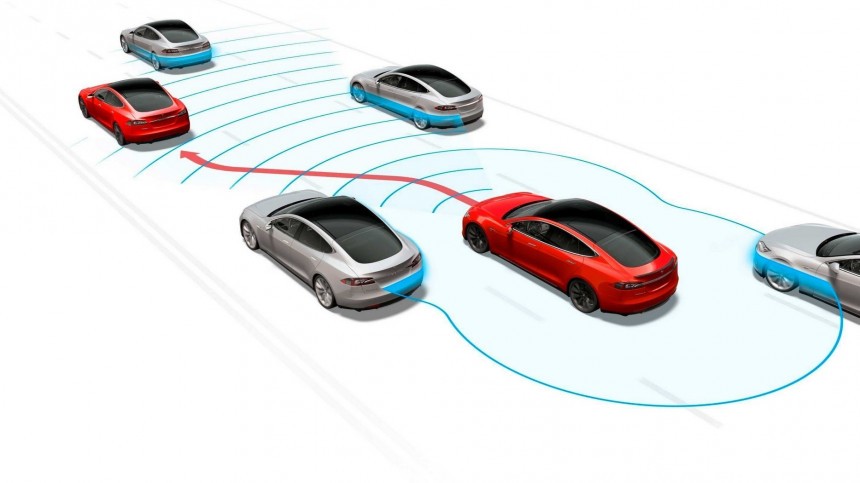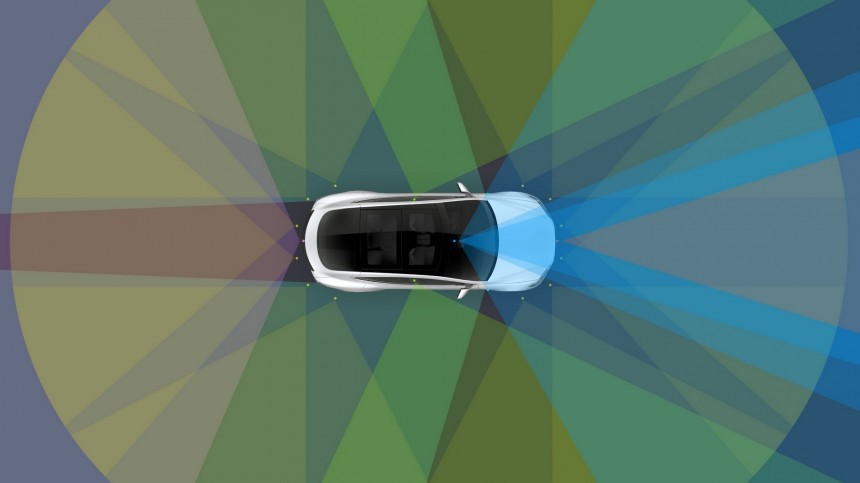Tesla lost its third lawsuit in Germany because of its advanced driver assistance systems (ADAS). A buyer took his case to the Darmstadt Regional Court on June 17, 2020. On February 21, 2022, the court ruled Tesla would have to buy back his car and pay the customer €67,000 ($68,162 at the current exchange rate). Although this is the third lawsuit Tesla has lost in Germany for the same reason, this one is slightly different.
This is the first case in which a Tesla customer brings up having HW 2.5 in his car. If you don’t remember what this involves, Elon Musk announced on April 23, 2019, that all its vehicles made from that point on would have all the necessary hardware to become self-driving. The Tesla CEO announced on the same day that the computer that would give the company its robotaxis was called HW 3.0. In other words, all Tesla vehicles would have that computer. Things did not go as Musk said they would.
Several customers around the world got cars made after April 23, 2019, with the HW 2.5 computer. In China, Tesla clients who got the wrong computer threatened to sue the company to get what they were promised. The company quickly apologized because it had also told the government it would install HW 3.0 computers in its cars. That information was included in a document Tesla sent to MEE – the Chinese Ministry of Ecology and Environment. Cars made in China must follow all specifications contained in this document.
The German customer of our story said his car came with HW 2.5. It is a pity we do not know when it was produced: we only know for sure it was before June 17, 2020. However, he probably mentioned the outdated computer because he expected to have the most recent hardware. Apart from Autopilot, this customer also bought “Volles Potenzial für autonomes Fahren,” or “full potential for autonomous driving,” an equivalent to Full Self-Driving (FSD).
Legal Tribune Online said that he asked Tesla for a correction, but it does not mention which repair that was. We suspect it was a request to replace HW 2.5 for the HW 3.0 computer it should have because the Tesla customer criticized the lack of required hardware. According to the lawsuit, the car would change lanes like a “drunk novice driver,” would not recognize stop signs and traffic lights, and Smart Summon didn’t work.
In its allegations on the judgment, Tesla’s lawyers said the vehicle would get the HW 3.0 computer when the “full potential for autonomous driving” software was available in Germany. That reinforces our belief that the customer tried to get Tesla to give it the right software before suing the company.
Tesla’s attorneys also argued that the car would only last for 250,000 to 300,000 kilometers (155,343 to 186,411 miles). This could either be an attempt to pay less money in an eventual conviction or Tesla’s first admission of how long it expects its cars to last.
As we already discussed here at autoevolution, Hansjörg Eberhard von Gemmingen made his Model S P85+ last 1 million miles (1,609,344 km) so far. Still, he used four different battery packs and nine drive units in his EV. Considering a battery pack costs around $20,000, he would have spent $80,000 on these components alone if it was not for the warranty.
The court did not accept Tesla's arguments. It said Elon Musk claimed Tesla’s vehicles would last 800,000 km (497,097 mi) and ruled it would have to buy back the car. The EV maker would just be entitled to get a small compensation for the mileage the EV got while this German customer drove it. Tesla can still appeal the decision. Considering the other two cases it lost, it does not seem it will revert it very easily – nor will it prevent future lawsuits based on the same arguments.
Several customers around the world got cars made after April 23, 2019, with the HW 2.5 computer. In China, Tesla clients who got the wrong computer threatened to sue the company to get what they were promised. The company quickly apologized because it had also told the government it would install HW 3.0 computers in its cars. That information was included in a document Tesla sent to MEE – the Chinese Ministry of Ecology and Environment. Cars made in China must follow all specifications contained in this document.
Legal Tribune Online said that he asked Tesla for a correction, but it does not mention which repair that was. We suspect it was a request to replace HW 2.5 for the HW 3.0 computer it should have because the Tesla customer criticized the lack of required hardware. According to the lawsuit, the car would change lanes like a “drunk novice driver,” would not recognize stop signs and traffic lights, and Smart Summon didn’t work.
In its allegations on the judgment, Tesla’s lawyers said the vehicle would get the HW 3.0 computer when the “full potential for autonomous driving” software was available in Germany. That reinforces our belief that the customer tried to get Tesla to give it the right software before suing the company.
As we already discussed here at autoevolution, Hansjörg Eberhard von Gemmingen made his Model S P85+ last 1 million miles (1,609,344 km) so far. Still, he used four different battery packs and nine drive units in his EV. Considering a battery pack costs around $20,000, he would have spent $80,000 on these components alone if it was not for the warranty.
The court did not accept Tesla's arguments. It said Elon Musk claimed Tesla’s vehicles would last 800,000 km (497,097 mi) and ruled it would have to buy back the car. The EV maker would just be entitled to get a small compensation for the mileage the EV got while this German customer drove it. Tesla can still appeal the decision. Considering the other two cases it lost, it does not seem it will revert it very easily – nor will it prevent future lawsuits based on the same arguments.
All Tesla cars being built today have the hardware necessary for full self-driving:
— Tesla (@Tesla) April 23, 2019
8 vision cameras, 12 ultrasonic sensors, radar, and this custom-designed beast of a Full Self-Driving Computer pic.twitter.com/jYMAhB5Ooc























